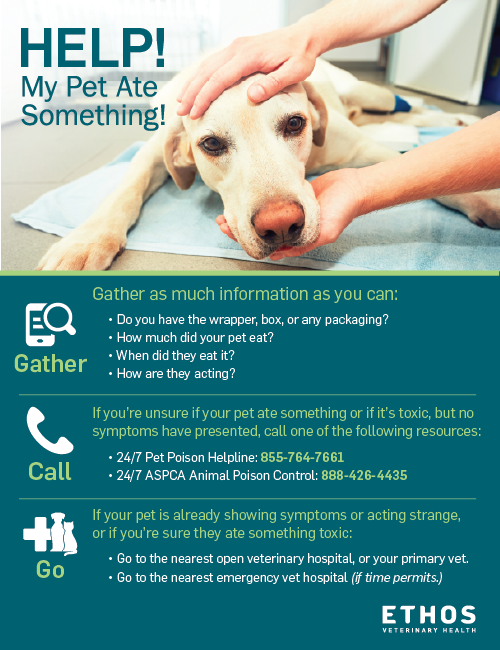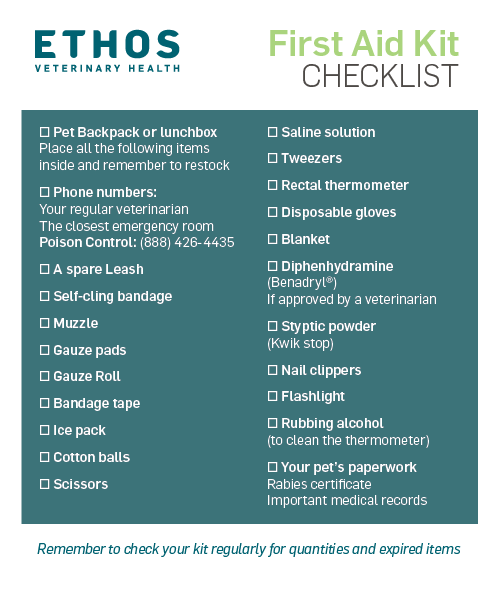Our Emergency and Critical Care team is on site 24 hours per day, 365 days per year.
WVRC – Racine/Kenosha provides 24-hour emergency and critical care services to dogs and cats, 365 days per year. Patients in our ICU are never left unattended and you can rest assured that as your pet recovers, he or she will be cared for at all times.
What to Do in an Emergency:
Call or Come in:
| 1123 58th Ave, Somers, WI 53144 |
| 262-553-9223 |
What to Do if You Suspect Your Pet Has Eaten Something Toxic
Gather up any packaging or remains of anything that was eaten, or suspected as having been eaten! This step will help speed up the diagnosis. Please don’t be shy, if it was marijuana or any other embarrassing (or illicit) product, please be honest with our team about it, it will speed up diagnosis and treatment.
Poison Control Centers:
- ASPCA Animal Poison Control Center: 888-426-4435
- Pet Poison Helpline: 800-213-6680

The team in our Emergency/Critical Care department work with other specialists, and your family veterinarian, to provide the comprehensive care your pet needs. Our board certified emergency and critical care specialists have extensive training in a complete range of emergency and critical care services and are supported by a team of experienced emergency veterinarians and technicians.
Emergency Services
- Comprehensive Emergency Medical Exam: what does it include?
- Surgical Services through Emergency/Critical Care: What we can treat
- Laboratory diagnostics
- Immediate blood test results
- Transfusion Medicine
Diagnostics
What is Critical Care?
Critical care helps pets with life-threatening injuries and illnesses. Critical Care specialty teams, including our Critical Care specialists, emergency clinicians, and nursing staff, help treat complications from surgery, trauma, accidents, infections, organ failure, and severe heart and breathing problems. The critical care team is a group of specially trained veterinary caregivers who work in both the emergency room and in a special area of the hospital known as the Intensive Care Unit, or ICU. Their main focus is to help very ill patients get better. The critical care nursing team serves as a valuable source of information regarding the minute-to-minute status of critically ill patients, and they are committed to teaching patients’ families strategies for continued care at home.
Critical Care management involves close, constant attention by a team of specially-trained pet health care providers. Critical care takes place in an ICU or trauma center and typically relies on specialized monitors, point-of-care ultrasound, intravenous (IV) tubes, feeding tubes, urinary catheters, breathing machines, and other medical equipment. Critical Care specialty medicine is a rapidly growing area of specialty medicine and has seen tremendous advancements that are now helping many pets survive conditions that were once considered fatal. We are here for you when you need us the most and our Critical Care specialists are prepared to provide you and your pet with the highest level of emergency and critical care medicine.
Our Critical Care Specialists
Board certified Criticalists have undergone rigorous specialty training focused on caring for every aspect of the critically ill patient and work with veterinary specialists in other fields to manage patients with multiple co-morbidities affecting a number of body systems. Our Criticalists’ high level of broad interdisciplinary expertise allows for the unique partnership amongst specialists to care for the most severely ill and injured pets. Specialized services at the core of critical care include trauma management, mechanical ventilation, CPR and post-arrest care, transfusion medicine, post-surgical recovery, acute organ failure, sepsis management, and tailored pain control planning.
Our Criticalists partner closely with our emergency clinicians and nurses to provide expedient and problem-directed care to our most urgent patients. Together, these teams use innovative approaches such as point-of-care emergency ultrasound and fear-free handling techniques to gently assess and care for beloved pets in times of crisis.
All pets admitted to the Intensive Care Unit (ICU) are closely monitored and continually assessed by our Criticalists and specialized ICU nursing team. Our Criticalists work closely with the families of our critically ill patients to coordinate the highest level of care while ensuring each step of the process is clearly communicated and understood by family members and caretakers alike. Our Criticalists are instrumental in the transition of care not only between specialists here at WVRC but also partner with your family veterinarian to allow seamless case management for future and ongoing care.
Pet-Specific First Aid Kit:
We recommend that you keep a pet-specific first aid kit in your car as a best practice, just as you would a human-first aid kit. Click the link for a printable PDF that you can keep in your kit for when you need to restock.
